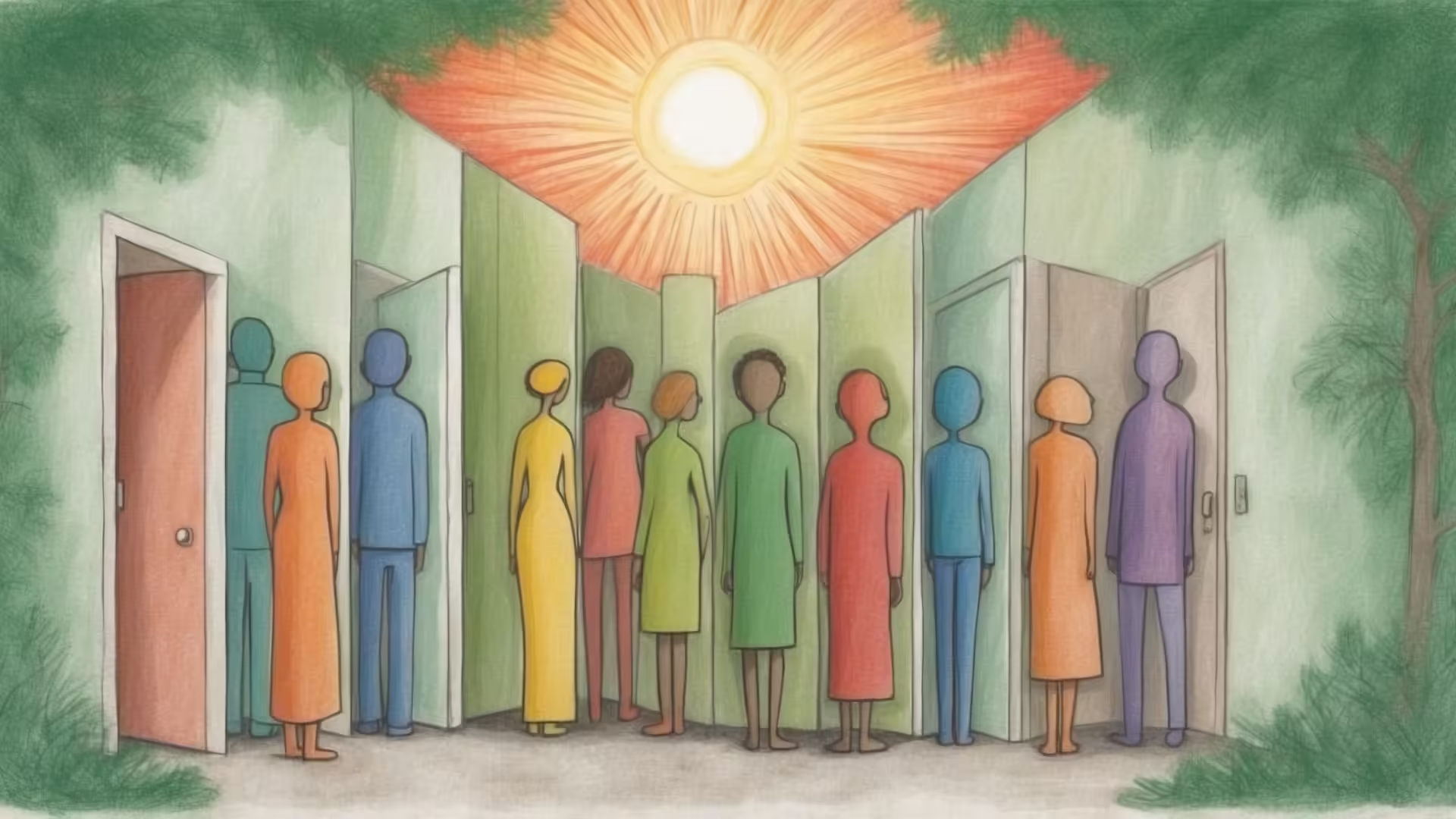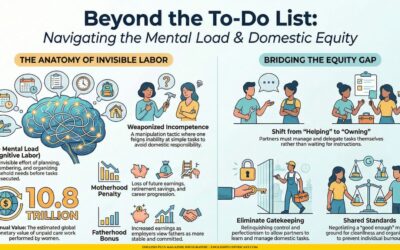- The Gist
- Systemic Barriers to Mental Health Care
- The Weight of Discrimination and Social Exclusion
- Stigma: A Silent Barrier to Seeking Help
- The Intersectionality of Mental Health
- The Importance of Culturally Competent Care
- Breaking the Cycle: What Can Be Done?
- Final Thoughts
- Let’s Talk
- Let’s Learn Vocabulary in Context
The Gist
Systemic Barriers to Mental Health Care
For many marginalized communities, mental health care remains out of reach. Systemic barriers—like inadequate health insurance, lack of culturally competent providers, and geographical limitations—create obstacles that make it difficult to access help. In rural areas and low-income neighborhoods, mental health services may be scarce or nonexistent, leaving people with no support when they need it most. Even when services are available, financial constraints make therapy and counseling inaccessible for many individuals.
The Weight of Discrimination and Social Exclusion
Discrimination isn’t just about unfair treatment—it can have a lasting impact on mental health. People from marginalized communities often experience chronic stress from microaggressions, prejudice, and social exclusion. This kind of stress can lead to anxiety, depression, and other mental health conditions. Living with constant reminders that you are treated differently takes a toll, contributing to feelings of isolation and hopelessness.
For example, racial and ethnic minorities often report higher levels of anxiety related to discrimination, while LGBTQ+ individuals are more likely to experience rejection from family and communities, increasing their vulnerability to mental health challenges.
Stigma: A Silent Barrier to Seeking Help
Even when mental health care is available, stigma can stop people from seeking support. In some marginalized communities, discussing mental health is seen as a sign of weakness or failure. Cultural expectations, fear of judgment, and the shame associated with mental illness create significant barriers to speaking up. Many individuals internalize these stigmas, believing that they must “tough it out” rather than seek professional help.
This silence can create a dangerous cycle—when people don’t seek care, their struggles worsen, which only reinforces the belief that mental health issues should be hidden. Addressing this stigma requires community-based efforts to normalize conversations around mental health and encourage open dialogue.
The Intersectionality of Mental Health
Intersectionality plays a critical role in understanding mental health challenges in marginalized communities. Intersectionality refers to how different aspects of identity—such as race, gender, sexual orientation, and socioeconomic status—interact to create unique experiences. A Black transgender individual, for instance, might face mental health challenges related to both racial discrimination and transphobia, making their experience more complex than someone dealing with just one form of marginalization.
Recognizing intersectionality is essential for developing effective mental health interventions. A one-size-fits-all approach doesn’t work because the experiences of each community, and even individuals within the same community, are distinct.
The Importance of Culturally Competent Care
Culturally competent care is mental health care that respects and responds to the cultural backgrounds of individuals. It’s not just about translating therapy into different languages—it’s about understanding the values, norms, and experiences that shape a person’s mental health journey. Without culturally competent care, individuals from marginalized communities may feel misunderstood or disconnected from their mental health providers, making it less likely that they will continue treatment.
Training mental health professionals to provide culturally sensitive care is a step toward building trust and creating safe spaces where individuals feel seen and heard. Community-based mental health programs that incorporate cultural values can also play a crucial role in closing the gap between marginalized communities and mental health services.
Breaking the Cycle: What Can Be Done?
Addressing mental health challenges in marginalized communities requires systemic change. Expanding access to affordable mental health care, especially in underserved areas, is a critical first step. But it’s equally important to reduce the stigma surrounding mental health through education and awareness campaigns that target both individuals and communities.
Encouraging open conversations within families, religious institutions, and community centers can help dismantle the shame surrounding mental health. Peer support networks and community leaders can also provide essential guidance, helping individuals find resources and support in culturally relevant ways.
Final Thoughts
Mental health challenges affect everyone, but marginalized communities face unique struggles that make it harder to get the help they need. Breaking down systemic barriers, reducing stigma, and promoting culturally competent care are essential steps toward creating an inclusive mental health system. At the end of the day, mental health isn’t just an individual issue—it’s a community responsibility. By working together to support those who are most vulnerable, we can create a world where mental well-being is accessible to all.
Let’s Talk
Mental health challenges in marginalized communities are complex, aren’t they? It’s easy to think that mental health is the same for everyone, but the truth is, the experience can be vastly different depending on your circumstances. When you think about it, it makes sense—if someone is already dealing with financial stress, discrimination, or social isolation, mental health struggles become even harder to navigate. And it’s not just about access to therapy, although that’s a huge part of the issue. It’s also about the emotional burden of feeling unseen or misunderstood.
Have you ever noticed how conversations about mental health can feel very “one-size-fits-all”? Like, there’s this general advice to “reach out and ask for help,” but what if you come from a community where mental health isn’t talked about openly? What if reaching out doesn’t feel like an option because you’re afraid of being judged or dismissed? These are real barriers, and they don’t just disappear because therapy apps exist or there’s a hotline to call. It’s not just about having resources—it’s about having the right resources, ones that feel safe and culturally relevant.
And then there’s the stigma. Stigma is a sneaky thing because it doesn’t always come from others—it can come from within. How many times have you heard or maybe even thought things like, “I just need to tough it out” or “Other people have it worse”? That kind of thinking can keep people from seeking help, especially in communities where vulnerability is seen as a weakness. It’s heartbreaking when someone feels they have to carry everything on their own because they believe asking for help makes them less capable. But isn’t it funny how we’d never judge someone for going to the doctor for a physical illness, yet mental health still feels different? Why do you think that is?
Another thing to consider is how mental health intersects with identity. It’s easy to underestimate how exhausting it can be to navigate the world as a person who experiences discrimination—whether it’s based on race, gender, or sexual orientation. Imagine carrying the weight of that every day, and then add mental health challenges on top of it. For some people, just making it through the day is a win. If you think about it, self-care for someone in that position looks very different from what you might see on Instagram. It’s not just about bubble baths and journaling—it’s about survival, about doing whatever it takes to get through the day.
The good news is that things are slowly changing. There’s a growing awareness of the importance of mental health in marginalized communities, and people are starting to have these tough conversations. Community-based mental health programs are making a difference, and more therapists are getting trained in cultural competence, which is essential. But we’ve still got a long way to go, don’t we? One of the most powerful things we can do is normalize talking about mental health—not just as individuals, but as families and communities. How often do we really ask each other, “How are you, really?” And when someone says they’re not okay, how do we respond?
Maybe that’s where the change starts—by learning to listen better and offering support in ways that feel meaningful. So here’s something to think about: What’s one thing you could do to help break the stigma around mental health in your own community? And how can we make sure the people around us feel safe enough to share what they’re going through? It might not solve everything, but even small changes in how we talk about mental health can make a big difference. Because at the end of the day, everyone deserves to feel seen, heard, and supported.
Let’s Learn Vocabulary in Context
Talking about mental health challenges in marginalized communities gives us some powerful vocabulary that goes beyond theory—it’s useful in conversations about everyday life. Let’s explore how these words and phrases were used and how you can apply them meaningfully in your own context.
First up is marginalized. It refers to people or groups who are pushed to the edges of society, often denied equal access to resources, opportunities, or recognition. You might say, “Many marginalized communities don’t have access to proper healthcare or education.”
Systemic barriers are obstacles embedded within institutions or systems that prevent people from getting the support they need. These barriers often go unnoticed by those who aren’t directly affected. For example, “Lack of affordable mental health care is a systemic barrier for low-income families.”
Next, we have stigma, which means a negative perception or judgment that surrounds certain behaviors, identities, or conditions. Stigma can prevent people from seeking help. You could say, “There’s still a lot of stigma around mental health, especially in conservative families.”
Intersectionality is a term that describes how different aspects of a person’s identity—like race, gender, or socioeconomic status—combine to create unique experiences. It’s helpful in recognizing that no two people experience the same challenges in exactly the same way. “Her experience as both a woman of color and an immigrant highlights the importance of intersectionality.”
Culturally competent care refers to mental health services that are respectful and responsive to the cultural backgrounds of the people receiving care. You might use it like this: “Therapists trained in culturally competent care are better equipped to help diverse clients feel understood.”
Access is another crucial word. In this context, it means the ability to obtain or use services, resources, or opportunities. “Even if mental health services exist, many people don’t have access to them due to high costs.”
Then there’s vulnerability, which refers to the state of being open to emotional exposure or risk. It takes courage to be vulnerable, especially in communities where mental health struggles are often hidden. “Talking about anxiety was a moment of vulnerability for me, but it felt liberating.”
Discrimination is unfair treatment based on personal characteristics like race, gender, or sexual orientation. It can have lasting effects on mental health. “Facing discrimination at work made it hard for him to feel comfortable being himself.”
Community-based support involves mental health services or programs run within and for a specific community. It’s often more effective because it’s tailored to the community’s needs. “The new community-based mental health initiative is helping local residents connect with free counseling services.”
Lastly, we have resilience, which refers to the ability to recover from difficulties and keep going despite challenges. It’s a quality we often see in marginalized communities that endure hardship. “Her resilience in the face of discrimination is inspiring.”
Here are two questions to think about: What’s one way stigma has shown up in your life or community? And how do you think access to community-based support could change mental health outcomes for those who need it most?










0 Comments